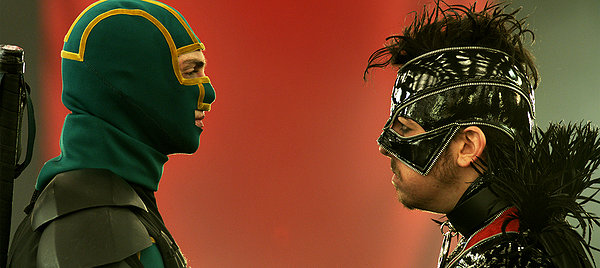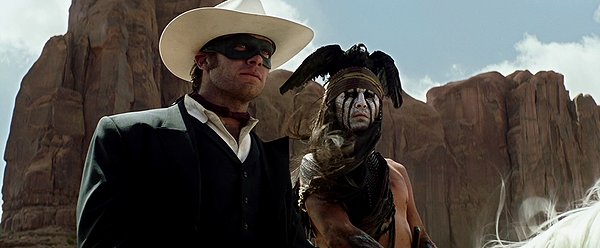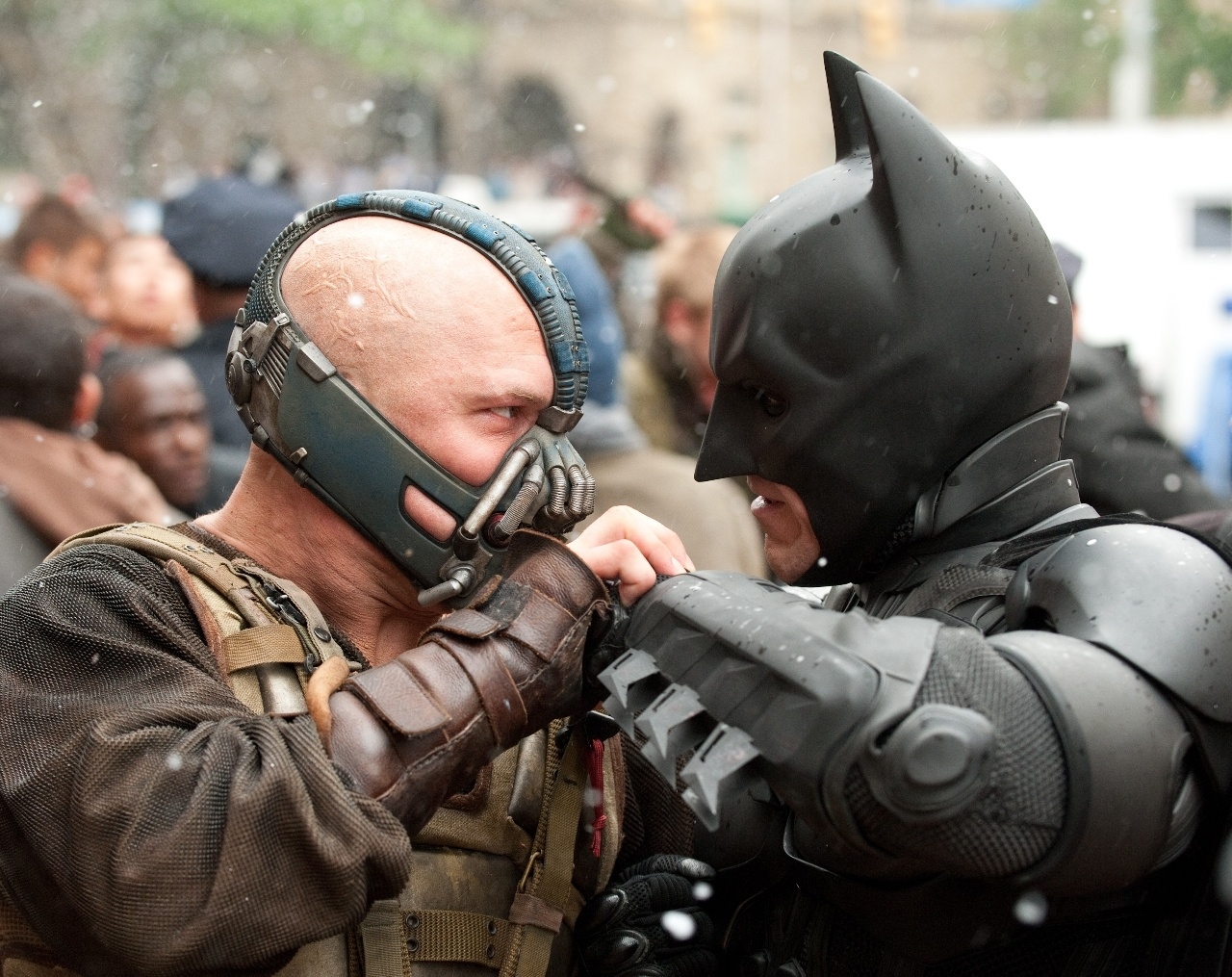“Kick-Ass 2,” the follow up to 2010’s “Kick-Ass”, seems unsure of what exactly it wants to be. The first film was an (admittedly very, very violent) exploration of what happens when ordinary people try to be superheroes, and the psychological toll that takes on ordinary kids. The sequel seems to be trying to continue that theme (and the violence) but also examine identity, compare the trials of adolescence to the trials of fighting crooks, the importance of genuine friendship, and throw in a little slapstick, juvenile humor for good measure. It’s kind of a mess, and how much you like it (or indeed, whether you like it at all) will depend heavily on your tolerance for incoherence and whether any of the elements included are dealbreakers.
The Lone Ranger is an American icon from a time long past. He lived on the radio and on black and white TV sets in a time when cowboy sagas and problematic portrayals of Native Americans were a big part of popular culture. When Gore Verbinsky and the rest of his “Pirates of the Caribbean” filmmaking crew set out to remake “The Lone Ranger” they clearly tried to give that some thought – word has it that they had Comanche advisors to help with authenticity, for example. But they also wanted to please fans of the original material, plus fans of their own material. The result is a bizarre mishmash of the awesome and the cringe-inducing. I’m sure there are folks who will love this movie (and there’s a fair amount to like!), but I am not one of them.
Christopher Nolan’s epic Batman trilogy launched seven years ago with “Batman Begins,” and now it wraps up with “The Dark Knight Rises.” This is a solid conclusion for a film franchise that has been nominated for over 100 awards and earned the love of millions of fans. The final film doesn’t reach the mind-blowing heights of “The Dark Knight,” but it provides a satisfying conclusion to Nolan’s trilogy.


